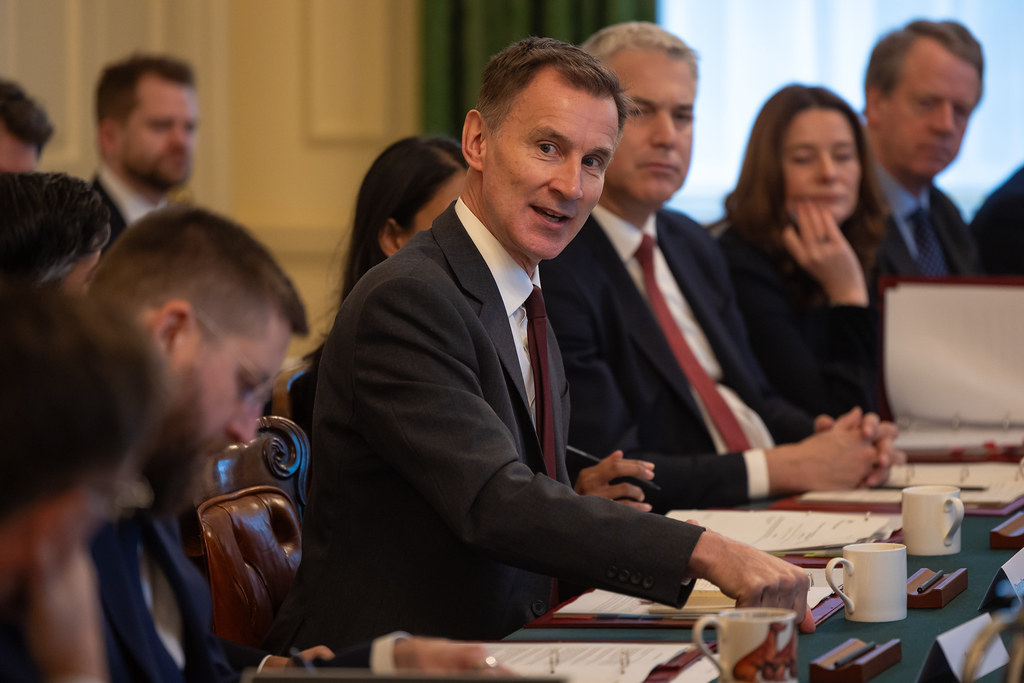Financial markets and traders are still expecting it to cut its base rate in 2024 due to the inflation rate falling sharply since peaking at 11.1% in October 2022, which was the highest rate in 40 years…reports Asian Lite News
Expectations that interest rates will be cut this year remain despite a surprise uptick in the UK’s inflation rate last month.
Inflation, which measures how prices rise over time, rose marginally to 4% in December, up from 3.9% in November. Economists had forecast a slight fall, but rises in tobacco and alcohol prices were behind the surprise rise.
But with energy bills predicted to come down in 2024, there are expectations of rate cuts later this year. Spikes in the cost of gas and electricity and food costs, started by Covid lockdowns ending across the world and fuelled further by Russia’s invasion of Ukraine, have put household finances under pressure in recent times.
The Bank of England raised rates in a bid to tackle the pace of price rises in the UK, which has strained the finances of households. The Bank’s rate currently stands at 5.25%, a 15-year high,which has led to higher mortgage rates due to the cost of borrowing money being more expensive. Returns on savings, however, have also gone up.
Financial markets and traders are still expecting it to cut its base rate in 2024 due to the inflation rate falling sharply since peaking at 11.1% in October 2022, which was the highest rate in 40 years.
Inflation has also fallen quicker than the Bank had predicted, but it still remains nearly double its 2% target. But on Wednesday, the markets shifted in their predictions on how much rates would be cut by.
Samuel Tombs, chief UK economist at Pantheon Macroeconomics, suggested that the five cuts priced in by investors before the latest inflation figures to bring rates down to 4% this year looked a “stretch”. But he added that energy prices falling further would drive down overall inflation, which he said should give the Bank “confidence” to cut its rate for the first time in May, “or failing that in June.
Ruth Gregory, deputy chief UK economist at Capital Economics, said she expected inflation to fall below the Bank’s 2% target in April, which would leave policymakers “in a position to cut interest rates by June”.
Sarah Coles, head of personal finance at Hargreaves Lansdown, said while the “trend is likely to be downwards” on interest rates, “there are likely to be more knocks on the way, with conflict in the Red Sea raising the risk of supply shortages, which could feed into higher prices”.
Several shipping companies have stopped vessels using the Red Sea – one of the world’s busiest shipping lanes – after attacks by Houthi rebels in Yemen.
Container vessels carrying all sorts of goods and fuel, mainly from Asia to Europe are having to divert around the southern tip of Africa, adding about 10 days onto journeys, which has prompted warnings that consumer prices could rise and drive up inflation again.
“There’s the risk this could end up throwing a real spanner in the works,” added Ms Coles, pointing out that December’s surprise rise in inflation “demonstrates that the path is going to be bumpy”.
Ahead of speculation of the Bank cutting interest rates, mortgage lenders have been announcing reductions in borrowing costs. On Wednesday, Coventry Building Society and Santander announced cuts as competition among lenders continues.
The ONS said tobacco and alcohol prices were up 12.9% in December compared to the month before, with the former rising due to recent tax hikes on the product.
ALSO READ-UK Inflation Eases to 3.9% in November

Leave a Reply